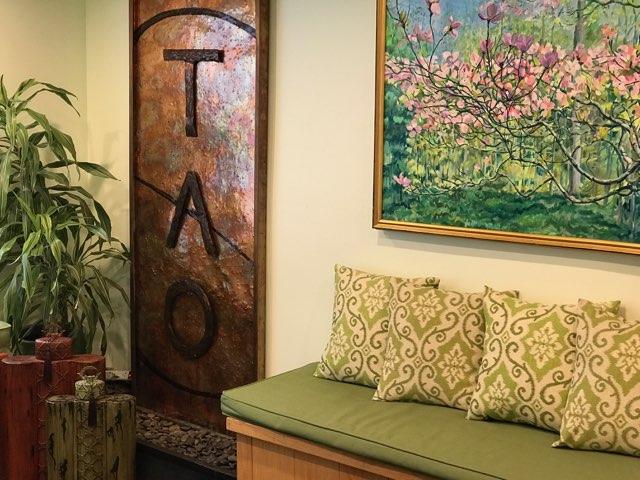
Naturopathic Medicine
When you're not getting answers to your health issues, natural medicine could be the solution you have been searching for.
Perspectives on Naturopathic Medicine
At our practice, we believe that there are many perspectives and approaches to naturopathic medicine, and our focus is on treating the underlying causes of health issues rather than the diseases themselves. Patients often inquire whether we treat specific diseases, but the truth is that we address the root causes of these conditions. Diseases are essentially clusters of symptoms resulting from disruptions in the body’s biochemistry, and once we identify and correct these disruptions, the body can heal itself. Our goal is to assist the body in functioning at its optimal health potential, which typically begins with optimizing gut function. This includes identifying food sensitivities or allergies, restoring beneficial gut flora, and replenishing nutrient deficiencies. We believe that by helping the body heal and restore its functionality, there is essentially no "disease" that cannot be addressed. The symptoms of disease are simply messages from the body indicating that something is amiss—whether it’s a lack of necessary nutrients or the presence of harmful substances. It's really that straightforward.
Principles of Naturopathic Medicine
1. The healing power of nature (Vis medicatrix naturae)
The body has an inherent ability to establish, maintain, and restore health. The healing process is ordered and intelligent; nature heals through the body’s vital life force. It is the role of the naturopathic physician to facilitate this natural process by identifying and removing obstacles to health and recovery and to promote a healthy internal and external environment for the body to heal. Principles needed to heal include adequate sleep, exercise, proper nutrition and, if needed, herbs which can move the body toward health without common side effects posed by some synthetic pharmaceuticals.
2. Identify and treat the cause (Tolle causam)
The underlying root cause of disease must be identified and removed for complete healing to take place. Illness does not occur without reason. Symptoms express the body’s attempt to heal, but are not the cause of the illness. It is the role of the naturopathic physician to identify the root cause of the illness and treat it, which will alleviate the symptoms.
3. First do no harm (Primum non nocere)
Illness is a purposeful process of the organism. The process of healing can cause the manifestation of symptoms, which are an expression of the body’s vital force attempting to heal itself. Any therapy that interferes with this natural healing process by masking or suppressing symptoms without removing the underlying cause is harmful and should be avoided. The natural life force of the individual must be supported to facilitate the healing process.
4. Treat the whole person (Tolle totum)
The core component of naturopathic medicine is the belief that health must go beyond treatment of immediate symptoms as in allopathic medicine. Instead, the person is seen as a whole, involving many complex interacting facets. Thus, treatment of the entire person (physical, mental, emotional, and spiritual) is necessary for recovery from and prevention of disease.
5. The physician as teacher (Docere)
The cooperative relationship between doctor and patient is essential to healing. The physician’s major role is to educate and encourage the patient to be responsible for his or her own health.
6. Prevention is the best cure
The ultimate goal is prevention. Emphasis is on building health not fighting disease. This is attained by building healthy internal and external environments for the body, assessing risk factors specific to each patient, and determining an individualized protocol to strengthen weaknesses and promote balance to ward off disease.
Goals of Naturopathic Medicine
Naturopathic medicine was established in the eighteenth and nineteenth centuries and has its origins in the Nature Cure movement of Europe. The term was coined in 1895 by John Scheel and popularized by Benedict Lust, the “father of U.S. naturopathy.” Naturopathic philosophy favors a holistic approach and minimal use of surgery and drugs.
Naturopathy comprises many different treatment modalities. The naturopathic physician uses gentle methods to boost the body’s vital ability to heal and maintain itself, including nutritional supplements, herbal remedies, proper diet, and exercise to restore health. The doctor works with the patient to educate him or her on ways to restore and maintain a healthy balance in the internal environment that will prevent further illness.
Successfully Treated Diseases/Symptoms
All of that being said, we have successfully treated patients who have come in with the following diseases/symptoms:
-
Acne
Allergies (environmental & food)
Asthma, autism, ADHD
Bronchitis
Lyme (& co-infections)
Obesity
Diabetes (type 1 &type 2)
Insulin resistance/pre-diabetes
Metabolic syndrome
Autoimmune disease
Hypertension
Hypercholesterolemia
High triglycerides
-
Fibromyalgia
Chronic fatigue syndrome
Ulcerative colitis
Crohn’s disease
IBS
PMS
PMDD
Depression
Anxiety
Insomnia
Hypothyroid
Parkinson’s disease
Psoriasis
-
Osteoporosis
Hot flashesMemory issues
Vaginal atrophy
Low libido
Hormonal imbalances
Prostate enlargement
Systemic
Vaginal yeast infections.

Training of a Naturopathic Physican
Naturopathic physicians are licensed primary care providers in many states, completing a four-year graduate program at a naturopathic medical school. They are trained in basic medical sciences, spinal manipulation, acupuncture, nutrition, and various other therapies. To become licensed, graduates must pass the NPLEX exams and meet state-specific requirements. Naturopathic physicians blend modern diagnostic techniques with traditional healing methods, offering a balanced approach that honors both science and nature.

Regulations of a Naturopathic Medicine
The Council on Naturopathic Medical Education (CNME) was established in 1978 as the accrediting agency for naturopathic medical institutions, educational programs, and post-graduate residency programs in the United States and Canada. Recognized by national naturopathic professional associations and the North American Board of Naturopathic Examiners (NABNE), CNME accredits four-year naturopathic colleges and programs of study in both countries.
Naturopathic Medicine & How It Can Help You
When you're not getting answers to your health issues, natural medicine could be the solution you have been searching for. It’s an all-too-common scenario...
